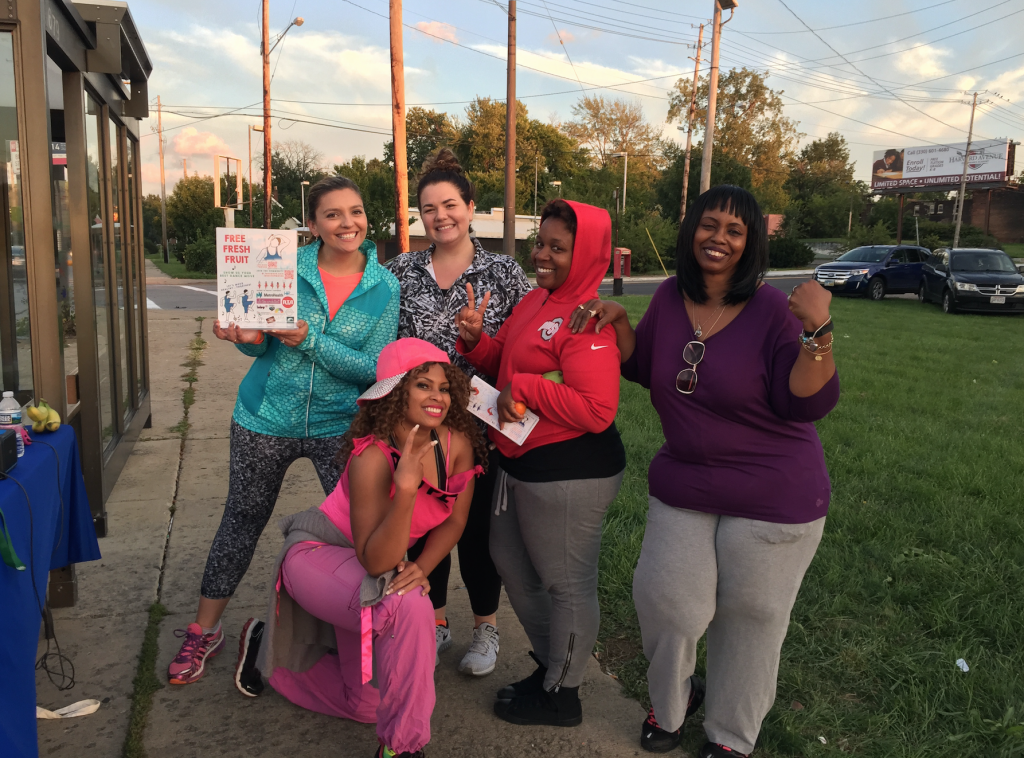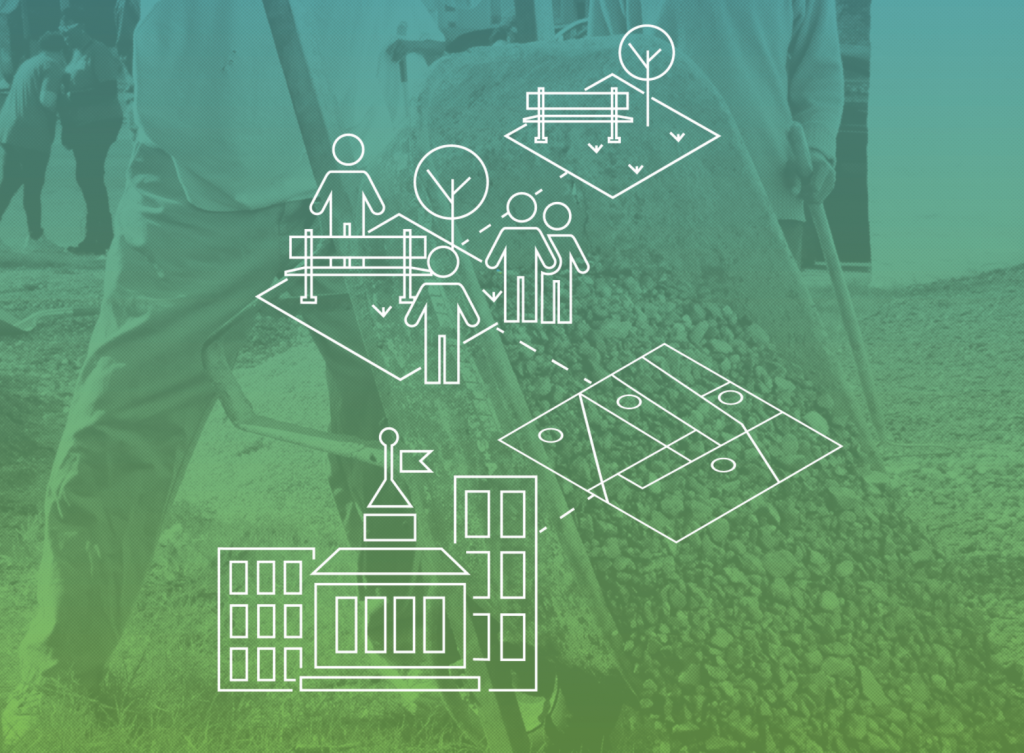Building civic power, one block at a time
Published February 23, 2017
What defines a civic action? What does meaningful civic engagement look like? How can communities build civic power?
People often think of a civic action as something like voting in an election, taking to the streets for a protest, or writing a letter to an elected official. And we certainly don’t disagree! But at ioby, we support civic action of a slightly different stripe.

We think the most meaningful civic actions are not merely a registering of opinion but a reclaiming of power.
We often see this happen when people step up to lead a tangible positive impact on their community. In turn, this leadership can set off a chain reaction of larger and larger impacts that can ultimately affect the way decisions are made on the highest levels. We think this power shift is a positive improvement to any community, but can be especially meaningful in neighborhoods with histories of disinvestment like many where we focus.
Sound abstract? Here’s what we mean, and how it works.
When you contribute to a neighbor-led project where you live—whether by starting it, volunteering for it, or donating money to it—you’re not just making a community garden prettier or a crosswalk safer. You’re also calling out your own stake in the place where you live, and helping to determine its future on several levels:
- Project Level. In the most basic way, local projects build the fabric of their neighborhoods. Even the lowest-ticket undertaking can make a significant impact on a community by greening up a vacant lot, offering prenatal yoga classes to low-income moms, or renovating a basketball court.
- Personal Level. Leading a neighborhood project is a big deal—in a good way! Summoning your skills and building mutual trust with your neighbors to do something positive, even if it’s temporary or “doesn’t seem like much,” can be a transformative esperience. When we become the agents of change were we live, we begin to see how much power we really have to make a difference.
- Neighborhood Level. Now expand that leaders’ mind-shift to a whole neighborhood. When people see the real-time impact of their involvement, when there are visible signs that neighbors are invested in a community’s improvement, the whole place can begin to shine with possibility.
- Civic Level. Here’s a pattern we’ve noticed: when neighbors come together to take ownership over positive change where they live, others pay attention. Policy makers, elected leaders, and the philanthropic sector take note of the good ideas, momentum, and civic strength displayed by neighborhood leaders, which in turn encourages more equitable, responsive, and inclusive decision-making processes at the highest levels.

Read more about these four level of impact in our Memphis Impact Report.
One of our favorite examples of the life cycle of neighbor-led local change is the story of Binh Dam and the MARTA Army in Atlanta, Georgia. When he moved to Atlanta, Binh noticed that most of the bus stops downtown didn’t post route maps or schedules. Through his project Timely Trip (part of our inaugural Trick Out My Trip campaign), Binh raised about $500 and recruited a team of volunteers to install temporary schedules at several bus stops. His good work attracted the attention of the Metropolitan Atlanta Regional Transit Authority (MARTA), and helped convince the agency to form an official citizen group called MARTA Army, in which transit riders themselves are empowered to identify and address needs within the transit system. More recently, as a direct result of pressure by the Army, MARTA announced plans for service expansions, more security cameras, mobile-ticketing technology, and other improvements. How’s that for increasingly big impact?!
If you, like many people, are questioning how you can find your place in civic life—especially in this political climate—consider what you could do on your own block. ioby projects may start small, but their impact can grow step-by-step into something much bigger: real, meaningful, and long-term civic power.
What’s your idea? ioby.org/idea
